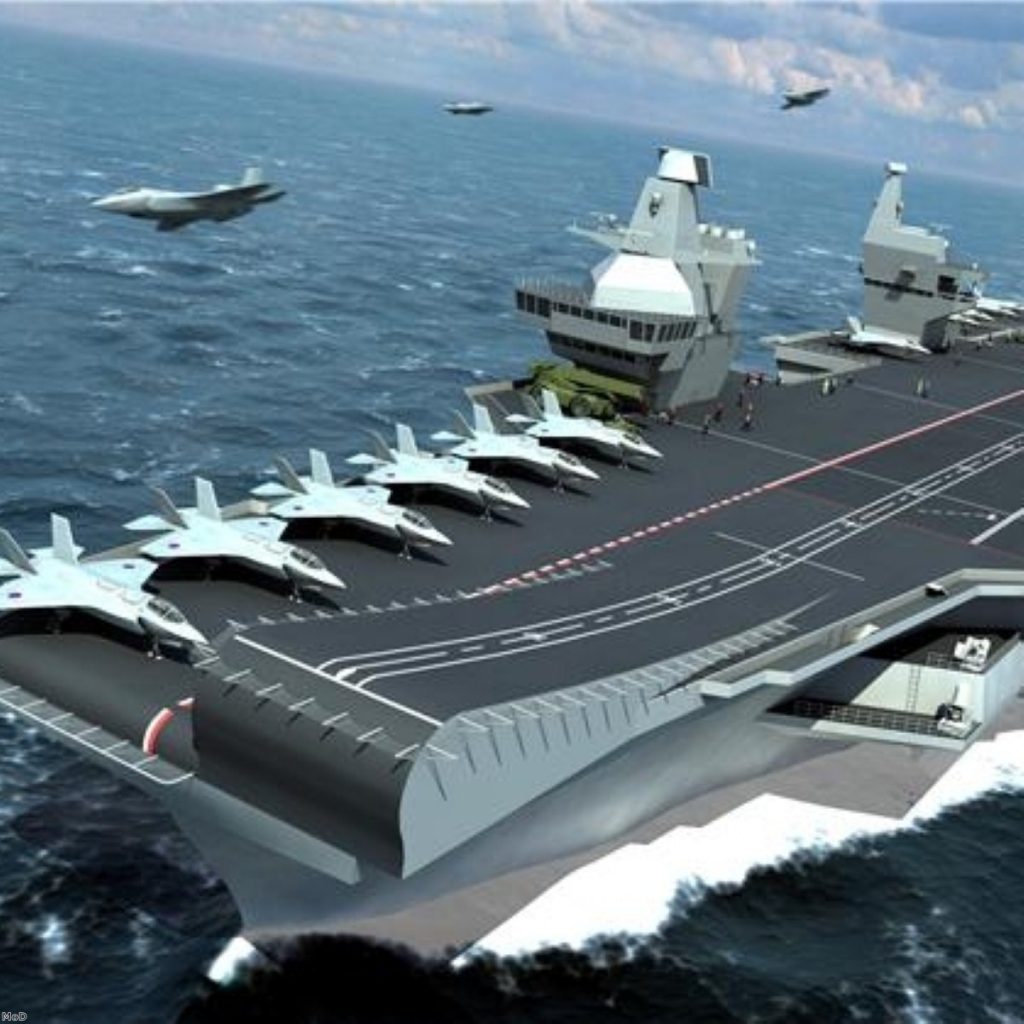MoD’s ‘blind faith’ in aircraft carrier decision
There are serious risks to value for money from the aircraft carrier project in the strategic defence and security review, the National Audit Office (NAO) says.
In October 2010 ministers decided that the Ministry of Defence should construct two carriers, which will carry Joint Strike Fighter (JSF) aircraft.
However only one carrier will be operated initially, with the second mothballed pending a decision in the next SDSR which is planned for 2015.
The NAO says that this represents a substantial risk to value for money as putting another carrier into operation would require a real-term increase in defence funding by 2015, which they suggest is unrealistic. The MoD faces budget cuts of eight per cent over the next four years.


Michael Whitehouse, chief operating officer of the NAO, warned that the SDSR had "radically changed" the project, which is known as Carrier Strike.
He said: "It generated £3.4 billion of savings but introduced significant levels of operational, technical, cost and schedule uncertainty.
"It will take two years for the department to reach a mature understanding of the consequences of the decision. These consequences include a decade without an operational carrier and the risks after such a time associated with reconstituting the capability."
The first carrier to be made operational will be converted using catapults and arrestor gear to fly a different and more advanced version of JSF than initially planned.
It will be available at sea for roughly half the year and will initially fly fewer aircraft, reducing the number of potential daily sorties by two thirds.
The decision to fit catapults and arrestor gear mean it will not be available until 2020, two years after the planned date, leaving the UK without aircraft carrier capability for a decade following the decommissioning of HMS Ark Royal in 2011.
Defence secretary Liam Fox said: "We inherited a massive defence deficit which included a carrier project that was already £1.6 billion over budget. The SDSR put this programme back on track and delivered £3.4 billion of overall savings to Carrier Strike.
"The NAO has noted that our decision to build the second new aircraft carrier makes financial sense, supports UK industry and the significant cost and capability advantages of the aircraft we now plan to fly from it.
"Converting one of the Queen Elizabeth Class aircraft carriers to operate the more capable and cost-effective carrier variant of the JSF fast jet will maximise our military capability."
Shadow defence secretary Jim Murphy viewed the report differently expressed his concern that David Cameron did not appear to be in "control of the facts" and criticising the "rushed" nature of the review.
He said: "It is now clear the government has created their own multi-million pound black hole in the defence budget with an uncosted carrier programme. They must now come clean as to whether they will fully fund the programme, how much this will cost and explain the impact on the wider equipment programme.
"The report bears out Labour's decision to retain warship-building as a key sovereign capability, but a lack of planning and bad decision-making by current ministers have created military risk and industrial uncertainty."
Fellow Labour MP Margaret Hodge, chair of the committee of public accounts, said that the NAO report had raised serious issues on transparency, cost and also the potential for cancellation.
The prime minister made a statement to the Commons on October 19th where he said: "We were left in a situation where even cancelling the second carrier would cost more that to build it. I have this in written confirmation from BAE systems."
However Ms Hodge said that the NAO report reveals this is not the full story, and cancellation was "feasible" and offered "significant savings".
She added that the NAO was not able to completely understand how the national security council came to its decision over the carriers because they were not given access to important cabinet committee papers.
"This lack of transparency over such a crucial and costly decision is not acceptable," Ms Hodge concluded.
This is the latest in a long line of controversies over the decision to press ahead with the construction of the two new Queen Elizabeth class aircraft carriers. The cost of the project has crept up and is now estimated at around £7 billion, £2 billion more than initially planned.












